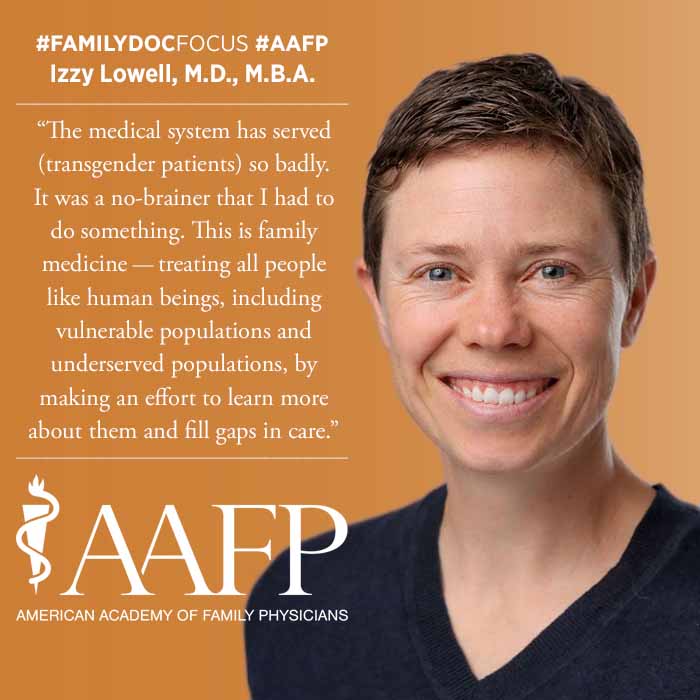Going the Extra Mile for Transgender Patients
June 10, 2019 01:06 pm David Mitchell – When Izzy Lowell, M.D., M.B.A., decided to dedicate one day a week to caring for transgender patients, some of her faculty colleagues at Emory University were skeptical.
"I was told there was no need for a gender clinic because there weren't any trans patients in Atlanta," she said. "It turns out there were. In fact, people started driving from out of state to see me."
One patient in particular caught Lowell's attention. After arriving a few minutes late for an appointment, the patient explained that he had left home at 6 a.m., driving more than five hours from Tennessee to see Lowell.
"I thought, 'This is ridiculous,'" she said. "'There has to be a better way.'"
Two years ago, Lowell founded QMed, a practice based in Decatur, Ga., that's focused on providing hormone therapy. She already has more than 800 patients, and this year Lowell hired two nurse practitioners to help her grow the practice and increase patient access.
It's been estimated that as many as 1.4 million U.S. adults are transgender. That's more than the number of Americans with type 1 diabetes.
"We should be learning about this in med school and expect to see transgender patients in practice, but there's a big discrepancy in access to care," she said. "About 1 in 200 people need hormone therapy, but very few are being served by primary care physicians in the southeast. I've heard horrifying patient stories."

That includes the physician who told a transgender woman that she would not be seen in clinic unless she dressed as a man. Another of Lowell's patients was told that a previous provider would treat the patient's broken arm but not her gender issues. Another physician offered to "cure" a transgender patient.
"The list goes on," Lowell said. "The medical system has served this population so badly. It was a no-brainer that I had to do something. This is family medicine -- treating all people like human beings, including vulnerable populations and underserved populations, by making an effort to learn more about them and fill gaps in care."
Lowell will share her experience with medical students June 17 in an AAFP webinar that will cover how to provide trans-friendly primary care and the basics of hormone therapy. It also will include a question-and-answer session.
Lowell also will be a featured speaker July 25 during a mainstage session about the diversity of careers in family medicine at the National Conference of Family Medicine Residents and Medical Students in Kansas City, Mo.
Lowell is on the road frequently. Prescribing laws for testosterone require in-person visits, so she offers pop-up clinics in Alabama, Tennessee, North Carolina and South Carolina for initial visits. More than half her patient panel is cared for through telemedicine.
Lowell, who also works part-time as a hospitalist, said attitudes about transgender people are changing and a practice like QMed might not be needed in the future.
"Hormone therapy is not complicated," she said. "It should be part of primary care. I look forward to the day QMed goes out of business because that will mean everyone is providing this care. Until then, we will continue to help patients who can't get care anywhere else."